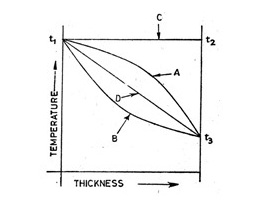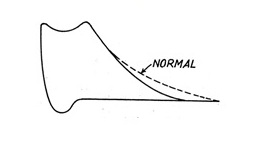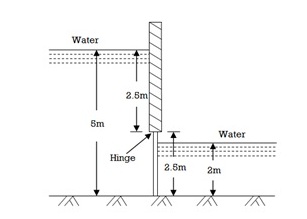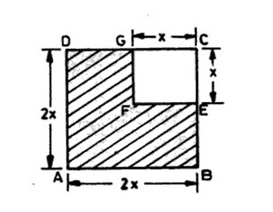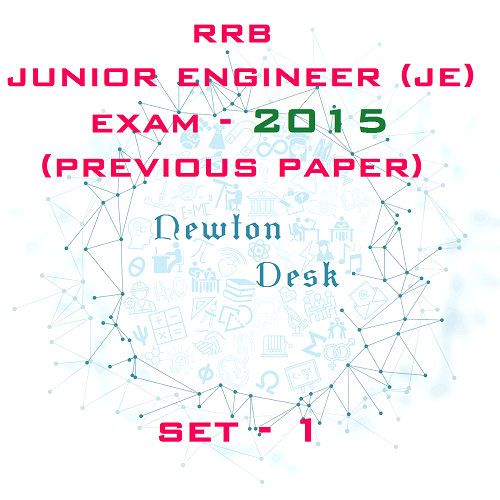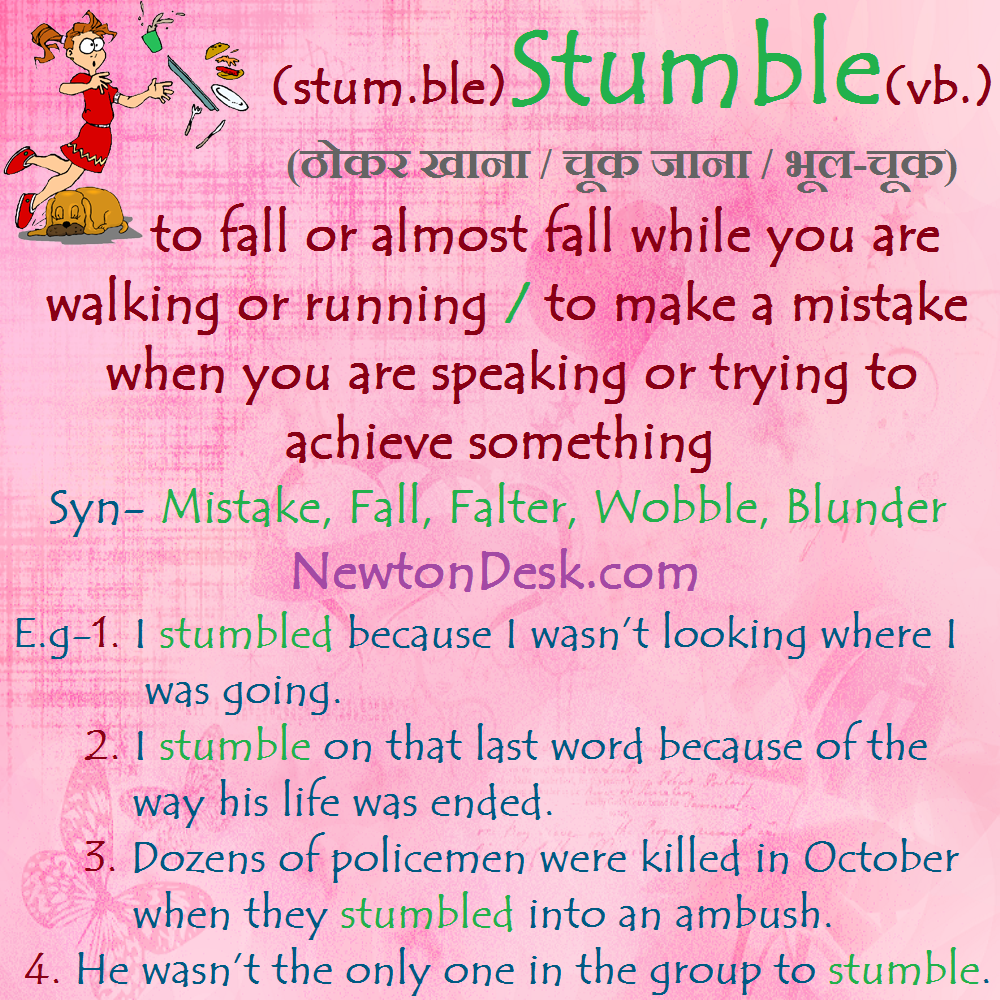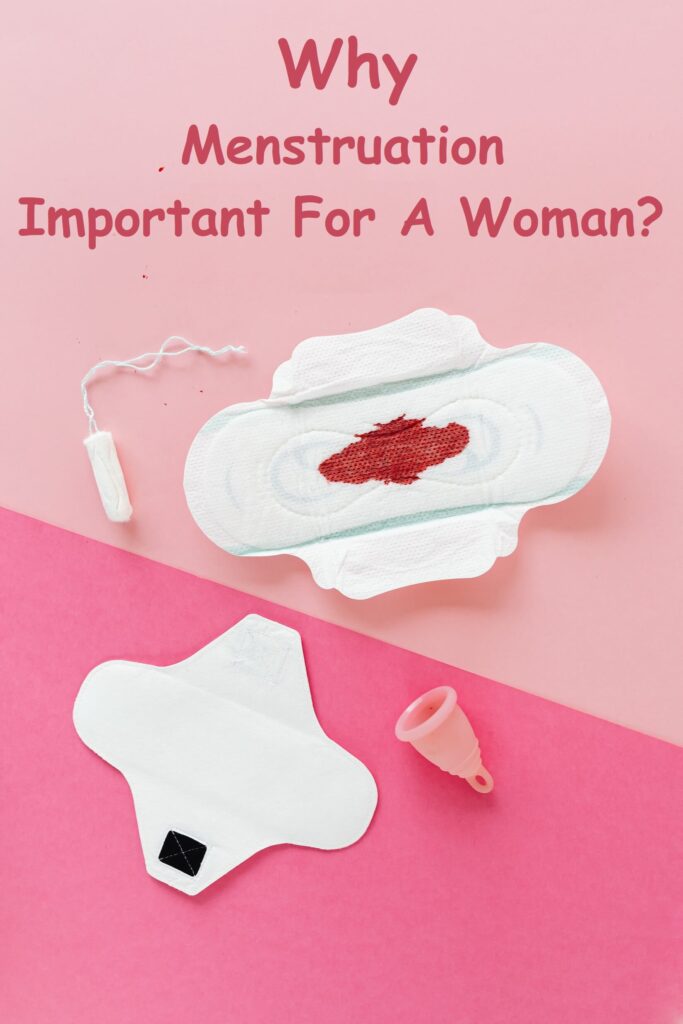SSC Junior Engineer
SSC Junior Engineer Exam Paper – 2016 “held on 03 March 2017 “Afternoon Shift (General Engineering)
Q 1 – Provision of fins on a given heat transfer surface will be more if there are _____.
Options:
1) Fewer number of thin fins
2) Fewer number of thick fins
3) Large number of thick fins
4) Large number of thin fins
Answer: Large number of thick fins
Q 2 – Which of the following would lead to a reduction in thermal resistance?
Options:
1) In conduction, reduction in the thickness of the material and an increase in the thermal conductivity.
2) In convection, stirring of the fluid and cleaning the heating surface
3) In radiation, increasing the temperature and reducing the emissivity
4) All options are correct
Answer: All options are correct
Q 3 – Inspite of large heat transfer coefficients in boiling liquids, fins are used advantageously when the entire surface is exposed to _____.
Options:
1) Nucleate boiling
2) Film boiling
3) Transition boiling
4) All modes of boiling
Answer: Film boiling
Q 4 – The parameter(s) responsible for loss of heat from a hot pipe surface in a room without fans would include _____.
Options:
1) Temperature of the surface and air in the room
2) Emissivity of the surface
3) Length and diameter of the pipe
4) All options are correct
Answer: All options are correct
Q 5 – The figure given below shows the variation of temperature across the thickness of materials with different thermal conductivities under steady states. Curve C will be applicable when thermal conductivity of the material______
1) increases with increase in temperature
2) decreases with increase in temperature
3) is very large
4) is constant at all temperatures
Answer: is very large
Q 6 – On a summer day, a scooter rider feels more comfortable while on the move than while at a stop light because _____.
Options:
1) An object in motion captures less solar radiation
2) Air is transparent to radiation and hence it is cooler than the body
3) More heat is lost by convection and radiation while in motion
4) Air has a low specific heat and hence it is cooler
Answer: More heat is lost by convection and radiation while in motion
Q 7 – In radiative heat transfer, a gray surface is one _____.
Options:
1) Which appears gray to the eye
2) Whose emissivity is independent of wavelength
3) Which has reflectivity equal to zero
4) Which appears equally bright from all directions
Answer: Whose emissivity is independent of wavelength
Q 8 – The property of a working substance, which increases or decreases according to the heat supplied or removed in a reversible manner, is called _____.
Options:
1) Enthalpy
2) Entropy
3) Reversibility
4) None of these
Answer: Entropy
Q 9 – Triple point _____.
Options:
1) Occurs in a mixture of two or more gases
2) Is the point, where three phases exists together
3) Occurs in sublimation
4) None of these
Answer: Is the point, where three phases exists together
Q 10 – Non quasistatic process is _____.
Options:
1) Free expansion of gas
2) Expansion of a gas in a cylinder under constant pressure
3) Rapid compression of a gas in a cylinder
4) Gradual compression of a gas in a cylinder
Answer: Free expansion of gas
Q 11 – Isentropic flow is _____.
Options:
1) Reversible adiabatic flow
2) Irreversible adiabatic flow
3) Frictionless fluid flow
4) None of these
Answer: Reversible adiabatic flow
Q 12 – In all reversible process, entropy of the system _____.
Options:
1) Increases
2) Decreases
3) Remains same
4) None of these
Answer: Increases
Q 13 – In isothermal expansion, work done by gas depends upon _____.
Options:
1) Atomicity of gas only
2) Expansion ratio only
3) Adiabatic index
4) Both Atomicity of gas and expansion ratio
Answer: Both Atomicity of gas and expansion ratio
Q 14 – The difference between two specific heats, Cp and Cv for a gas represents _____.
Options:
1) Increase in kinetic energy of gas molecules
2) Increase in potential energy of gas molecules
3) External work done
4) Increase in volume
Answer: External work done
Q 15 – The universal gas constant of a gas is the product of molecular weight of the gas and _____.
Options:
1) Gas constant
2) Specific heat at constant pressure
3) Specific heat at constant volume
4) None of these
Answer: Gas constant
Q 16 – The temperature of a gas is a measure of _____.
Options:
1) Average distance between gas molecules
2) Average kinetic energy of gas molecules
3) Average potential energy of gas molecules
4) None of these
Answer: Average kinetic energy of gas molecules
Q 17 – A perpetual motion machine of the first kind i.e. a machine which produces power without consuming any energy is _____.
Options:
1) Possible according to first law of thermodynamics
2) Impossible according to first law of thermodynamics
3) Impossible according to second law of thermodynamics
4) Possible according to second law of thermodynamics
Answer: Impossible according to first law of thermodynamics
Q 18 – A system consisting of more than one phase is called _____.
Options:
1) Isolated system
2) Open system
3) Non-uniform system
4) Heterogeneous system
Answer: Heterogeneous system
Q 19 – Thermal equilibrium between two or more bodies exists, when they are brought together, there is no change in _____.
Options:
1) Density
2) Pressure
3) Temperature
4) All options are correct
Answer: Temperature
Q 20 – Control volume refers to a _______.
Options:
1) Specified mass
2) Fixed region in the space
3) Closed system
4) None of these
Answer: Fixed region in the space
Q 21 – In regenerator type heat exchanger, heat transfer takes place by
Options:
1) direct mixing of hot and cold fluids
2) a complete separation between hot and cold fluids
3) flow of hot and cold fluids alternately over a surface
4) generation of heat again and again
Answer: flow of hot and cold fluids alternately over a surface
Q 22 – Film coefficient is the ratio of _____.
Options:
1) Thickness of film of fluid to thermal conductivity
2) Thickness of film of fluid to temperature drop through film of fluid
3) Thermal conductivity to temperature drop through film of fluid
4) Thermal conductivity to equivalent thickness of film of fluid
Answer: Thermal conductivity to equivalent thickness of film of fluid
Q 23 – Highest thermal diffusivity is of _____.
Options:
1) Iron
2) Lead
3) Concrete
4) Wood
Answer: Lead
Q 24 – Highest thermal conductivity is of _____.
Options:
1) Solid ice
2) Melting ice
3) Water
4) Steam
Answer: Solid ice
Q 25 – The ratio of work done per cycle to the swept volume in case of compressor is called
Options:
1) compression index
2) compression ratio
3) compressor efficiency
4) mean effective pressure
Answer: mean effective pressure
[sociallocker]
Q 26 – The indicator diagram shown in the figure below obtained on a compressor shows that_____.
Options:
1) suction valve or piston rings, or both are leaking
2) discharge valve is leaking into cylinder during compression stroke
3) slow opening suction valve
4) suction valve sticking open at beginning of compression stroke
Answer: discharge valve is leaking into cylinder during compression stroke
Q 27 – Metals are good heat conductors because _____.
Options:
1) of free electrons present
2) their atoms are relatively far apart
3) their atoms collide frequently
4) All options are correct
Answer: their atoms collide frequently
Q 28 – Heat is transferred from an insulated pipe to the surrounding still air by _____.
Options:
1) Conduction
2) Convection
3) Radiation
4) All options are correct
Answer: Radiation
Q 29 – Heat is transferred by conduction, convection and radiation in _____.
Options:
1) Boiler furnaces
2) Melting of ice
3) Condensation of steam in condenser
4) None of these
Answer: Boiler furnaces
Q 30 – In optical pyrometers absorption filter is used _____.
Options:
1) To get monochromatic light
2) To eliminate stray rays of light
3) To minimise reflection of rays from the lens surface
4) To enable filament operation at reduced intensity for longer life
Answer: To enable filament operation at reduced intensity for longer life
Q 31 – The flow of water in a pipe of diameter 3000 mm can be measured by _____.
Options:
1) Venturimeter
2) Rotameter
3) Pilot tube
4) Orifice plate
Answer: Pilot tube
Q 32 – Buoyant force is _____.
Options:
1) Resultant of up-thrust and gravity forces acting on the body
2) Resultant force on the body due to the fluid surrounding it
3) Resultant of static weight of body and dynamic thrust of fluid
4) Equal to the volume of liquid displaced by the body
Answer: Equal to the volume of liquid displaced by the body
Q 33 – In equilibrium condition, fluids are not able to sustain _____.
Options:
1) Shear force
2) Resistance to viscosity
3) Surface tension
4) Geometric similitude
Answer: Surface tension
Q 34 – A large Reynold number is indication of _____.
Options:
1) Smooth and streamline flow
2) Laminar flow
3) Steady flow
4) Highly turbulent flow
Answer: Highly turbulent flow
Q 35 – The fluid forces considered in the Navier Stokes equation are _____.
Options:
1) Gravity, pressure and viscous
2) Gravity, pressure and turbulent
3) Pressure, viscous and turbulent
4) Gravity, viscous and turbulent
Answer: Gravity, pressure and viscous
Q 36 – Tranquil flow must always occur _____.
Options:
1) at normal depth
2) above normal depth
3) below normal depth
4) above critical depth
Answer: above critical depth
Q 37 – A vertical sluice gate 3m wide and 2.5m deep contains water on both of its sides. On the upstream side, the water is 5m deep and on the downstream side it is 2m deep from the bottom of the sluice. What is the resultant pressure on the gate ?
1) 275.9 KN
2) 58.9 KN
3) 217 KN
4) None of these
Answer: 217 KN
Q 38 – The coefficient of discharge (Cd) of an orifice varies with _____.
Options:
1) Reynold number
2) Weber number
3) Froude number
4) Mach number
Answer: Reynold number
Q 39 – Head loss in turbulent flow in a pipe _____.
Options:
1) Varies directly as velocity
2) Varies inversely as square of velocity
3) Varies approximately as square of velocity
4) Varies inversely as velocity
Answer: Varies approximately as square of velocity
Q 40 – A type of flow in which the fluid particles while moving in the direction of flow rotate about their mass centre, is called _____.
Options:
1) Steady flow
2) Uniform flow
3) Laminar flow
4) Rotational flow
Answer: Rotational flow
Q 41 – For a flow to be rotational, velocity normal to the plane of area should be equal to the _____.
Options:
1) Angular velocity vector
2) Half the angular velocity vector
3) Twice the angular velocity vector
4) Zero
Answer: Twice the angular velocity vector
Q 42 – A fluid in which resistance to deformation is independent of the shear stress, is called _____.
Options:
1) Bingham plastic fluid
2) Pseudo plastic fluid
3) Dilatant fluid
4) Newtonian fluid
Answer: Newtonian fluid
Q 43 – The rate of change of linear momentum is equals to _____.
Options:
1) Active force
2) Reactive force
3) Torque
4) Work done
Answer: Active force
Q 44 – The force buoyancy is dependent on _____.
Options:
1) Mass of liquid displaced
2) Viscosity of fluid
3) Surface tension of fluid
4) Depth of immersion
Answer: Mass of liquid displaced
Q 45 – The vapour pressure over the concave surface is _____.
Options:
1) Less than the vapour pressure over the plane surface
2) Equal to vapour pressure over the plane surface
3) Greater than the vapour pressure over the plane
4) Zero
Answer: Less than the vapour pressure over the plane surface
Q 46 – Bernoulli’s equation cannot be applied when the flow is _____.
Options:
1) Rotational
2) Turbulent
3) Unsteady
4) All options are correct
Answer: Turbulent
Q 47 – When a body floating in a liquid is displaced slightly, it oscillates about _____.
Options:
1) Centre of gravity of body
2) Centre of pressure
3) Centre of buoyancy
4) Metacentre
Answer: Metacentre
Q 48 – Heaviest fluid is _____.
Options:
1) Air
2) Castor oil
3) Glycerin
4) Carbon tetrachloride
Answer: Carbon tetrachloride
Q 49 – A hydrometer is used to determine _____.
Options:
1) Relative humidity
2) Buoyant force
3) Specific gravity of liquids
4) Viscosity of liquids
Answer: Specific gravity of liquids
Q 50 – A model of torpedo is tested in a towing tank at a velocity of 25 m/sec. The prototype is expected to attain a velocity of 5 m/sec. What model scale has been used?
Options:
1) 1 : 5
2) 1: 2.5
3) 1: 25
4) None of these
Answer: 1 : 5
SSC Junior Engineer Exam Previous Paper (http://www.newtondesk.com)
Q 51 – For the water is flowing through a 20 cm diameter pipe with friction factor, f = 0.04. The flow will be _____.
Options:
1) Viscous
2) Non viscous
3) Both viscous and non-viscous
4) None of these
Answer: Viscous
Q 52 – Crude oil of kinematic viscosity 2.25 stokes flows through a 20 cm diameter pipe, The rate of flow being 1.5 litres/sec. The flow will be _____.
Options:
1) Laminar
2) Turbulent
3) Uncertain
4) None of these
Answer: Laminar
Q 53 – The maximum continuous power available from a hydroelectric plant under the most adverse hydraulic conditions is known as _____.
Options:
1) base power
2) firm power
3) primary power
4) secondary power
Answer: firm power
Q 54 – A plot between power generated in MW and time is known as _____.
Options:
1) Load curve
2) Load duration curve
3) Load factor
4) Demand curve
Answer: Load curve
Q 55 – The ratio of ‘Average generation in KWH per year’ to ‘the product of Installed capacity in KW and hrs per year’ is known as _____.
- Plant factor
B. Capacity factor
C. Use factor
Options:
1) only A
2) A or B
3) A or B or C
4) only C
Answer: A or B or C
Q 56 – Portion of the installed reserve kept in operable condition but not placed in service to supply the peak load is known as _____.
Options:
1) Operating reserve
2) Spinning reserve
3) Cold reserve
4) Hot reserve
Answer: Cold reserve
Q 57 – Capacity of hydroelectric plant in service in excess of the peak load is known as _____.
Options:
1) Operating reserve
2) Spinning reserve
3) Cold reserve
4) Hot reserve
Answer: Operating reserve
Q 58 – An impulse turbine is used for _____.
Options:
1) Low head of water
2) High head of water
3) Medium head of water
4) High discharge
Answer: High head of water
Q 59 – In a reaction turbine, the draft tube is used _____.
Options:
1) To run the turbine full
2) To prevent air to enter the turbine
3) To increase the effective head of water
4) To transport water to downstream
Answer: To increase the effective head of water
Q 60 – In an inward flow reaction of turbine _____.
Options:
1) The water flows parallel to the axis of the wheel
2) The water enters the centre of wheel and there flows towards the outer periphery of the wheel
3) The water enters the wheel at the outer periphery, and then flows towards the centre of the wheel
4) The flow of water is partly radial and partly axial
Answer: The water enters the wheel at the outer periphery, and then flows towards the centre of the wheel
Q 61 – Castor and camber are terms associated with which of the following parts of an automobile?
Options:
1) Gears
2) Engine
3) Suspensions
4) Wheels
Answer: Wheels
Q 62 – In reciprocating engines primary forces _____.
Options:
1) Are completely balanced
2) Are partially balanced
3) Are balanced by secondary forces
4) Cannot be balanced
Answer: Are partially balanced
Q 63 – A friction circle is a circle drawn when the journal rotates in a bearing. Its radius depends on the coefficient of friction and _____.
Options:
1) Magnitude of the forces on the journal
2) Angular velocity of the journal
3) Clearance between the journal and the bearing
4) Radius of the journal
Answer: Radius of the journal
Q 64 – The gear train usually employed in clocks is a _____.
Options:
1) Reverted gear train
2) Simple gear train
3) Sun and planet gear
4) Differential gear
Answer: Reverted gear train
Q 65 – Critical damping is a function of _____.
Options:
1) Mass and stiffness
2) Mass and damping co-efficient
3) Stiffness and natural frequency
4) Natural frequency and damping co-efficient
Answer: Mass and stiffness
Q 66 – Rotating shafts tend to of vibrate violently at whirling speeds because _____.
Options:
1) The shafts are rotating at vary speeds
2) Bearing centre line coincide with the shaft axis
3) The system is unbalanced
4) Resonance is caused due to the heavy weight of the rotor
Answer: Resonance is caused due to the heavy weight of the rotor
Q 67 – Critical or whirling speed is the speed at which the shaft tends to vibrate violently in _____.
Options:
1) Transverse direction
2) Longitudinal direction
3) Linear direction
4) None of these
Answer: Transverse direction
Q 68 – When a shaking force is transmitted through the springs, damping becomes detrimental when the ratio of its frequency to the natural frequency is greater than _____.
Options:
1) 0.25
2) 0.5
3) 1
4) √2
Answer: √2
Q 69 – Stress concentration in static loading is more serious in _____.
Options:
1) Ductile materials
2) Brittle materials
3) Equally serious in both cases
4) Depends on other factors
Answer: Brittle materials
Q 70 – Which of the following key transmits power through frictional resistance only?
Options:
1) Saddle key
2) Barth key
3) Kennedy key
4) Tangent key
Answer: Saddle key
Q 71 – The key will fail in which of the following manner?
Options:
1) Shearing
2) Crushing
3) Both crushing and shearing
4) None of these
Answer: Both crushing and shearing
Q 72 – In hydrostatic bearing the starting friction is _____.
Options:
1) Very low
2) More
3) Either more or less
4) Uncertain
Answer: Very low
Q 73 – Feather keys are generally _____.
Options:
1) Tight in shaft and loose in hub
2) Loose in shaft and tight in hub
3) Tight in both shaft and hub
4) Loose in both shaft and hub
Answer: Tight in shaft and loose in hub
Q 74 – The uniform pressure theory as compared to the uniform wear theory gives _____.
Options:
1) Higher frictional torque
2) Lower frictional torque
3) Either lower or higher frictional torque
4) None of these
Answer: Higher frictional torque
Q 75 – Tapered roller bearings can take _____.
Options:
1) Radial load only
2) Axial load only
3) Both radial and axial loads and the ratio of these being less than unity
4) Both radial and axial loads and the ratio of these bring greater than unity
Answer: Both radial and axial loads and the ratio of these being less than unity
SSC Junior Engineer Exam Previous Paper (http://www.newtondesk.com)
Q 76 – Two shafts A and B are made of the same material. The diameter of shaft B is twice that of shaft A. The ratio of power which can be transmitted by shaft A to that of shaft B is _____.
Options:
1) 1/2
2) 1/4
3) 1/8
4) 1/16
Answer: 1/8
Q 77 – For the two shafts connected in parallel, find which statement is true?
Options:
1) Torque in each shaft is the same
2) Shear stress in each shaft is the same
3) Angle of twist of each shaft is the same
4) Torsional stiffness of each shaft is the same
Answer: Angle of twist of each shaft is the same
Q 78 – The buckling load will be maximum for a column if _____.
Options:
1) One end of the column is clamped and the other end is free
2) Both ends of the column are clamped
3) Both ends of the column are hinged
4) One end of the column is hinged and the other end is free
Answer: Both ends of the column are clamped
Q 79 – The number of strain readings (using strain gauges) needed on a plane surface to determine the principal strains and their directions are _____.
Options:
1) 1
2) 2
3) 3
4) 4
Answer: 3
Q 80 – If the value of Poisson’s ratio is zero, then it means that _____.
Options:
1) The material is rigid
2) The material is perfectly plastic
3) There is no longitudinal strain in the material
4) None of these
Answer: None of these
Q 81 – Which of the following is applied to brittle materials?
Options:
1) Maximum principal stress theory
2) Maximum principal strain theory
3) Maximum strain energy theory
4) Maximum shear stress Theory
Answer: Maximum principal stress theory
Q 82 – Design of shafts made of brittle materials is based on _____.
Options:
1) Guest’s theory
2) Rankine’s theory
3) St.Venant’s theory
4) Von Mises theory
Answer: Rankine’s theory
Q 83 – The moment of inertia of a hollow circular section whose external diameter is 8 cm and internal diameter is 6 cm about centroidal axis is _____ cm4.
Options:
1) 437.5
2) 337.5
3) 237.5
4) 137.5
Answer: 437.5
Q 84 – The maximum frictional force which comes into play when a body just begins to slide over the surface of another body is known as _____.
Options:
1) sliding friction
2) rolling friction
3) limiting friction
4) None of these
Answer: limiting friction
Q 85 – A square sheet of metal has a square of one quarter of the original area cut from one corner as shown in the figure. Which of the following statements is true about the position of the centre of gravity of the remaining portion of the sheet ?
1) Centre of gravity lies at a distance of 5/12 of the side of the original square from each uncut side
2) Centre of gravity lies at a distance of 7/12 of the side of the original square from each uncut sid
3) Centre of gravity lies at a distance of 3/4 of the side of the original square from each uncut side
4) None of these
Answer: Centre of gravity lies at a distance of 5/12 of the side of the original square from each uncut side
Q 86 – A steel bar 20 mm in diameter simply supported at its ends over a total span of 40 cm, carries a load at its center. If the maximum stress included in the bar is limited to 480/π N/mm2 then the bending strain energy stored in the bar is _____.
Options:
1) 411 N mm
2) 511 N mm
3) 611 N mm
4) 711 N mm
Answer: 611 N mm
Q 87 – The Charpy test is conducted to measure _____.
Options:
1) Toughness
2) Creep strength
3) Fatigue strength
4) Elastic strength of a material
Answer: Toughness
Q 88 – The stress produced by a suddenly applied load as compared to that produced by the same load when applied gradually is _____ times.
Options:
1) 1.5
2) 2
3) 3
4) 4
Answer: 2
Q 89 – The bending moment for a certain portion of the beam is constant. For that section, shear force would be _____.
Options:
1) Zero
2) Increasing
3) Decreasing
4) Constant
Answer: Zero
Q 90 – An increase in load at the free end of a cantilever is likely to cause failure _____.
Options:
1) At the free end
2) At the mid of its length
3) At the fixed support end
4) Anywhere on the beam
Answer: At the fixed support end
Q 91 – In the electro-discharge machining process, the work-piece and the electrode are submerged in _____.
Options:
1) a dielectric fluid
2) an abrasive slurry
3) an electrolytic solution
4) vacuum
Answer: a dielectric fluid
Q 92 – Swaging is an operation of _____.
Options:
1) hot rolling
2) forging
3) extrusion
4) piercing
Answer: forging
Q 93 – In arc welding operations the current value is decided by _____.
Options:
1) thickness of plate
2) length of welded portion
3) voltage across the arc
4) size of the electrode
Answer: size of the electrode
Q 94 – Two sheets of same material but different thickness can be butt welded by _____.
Options:
1) adjustment of the current
2) time duration of current
3) pressure applied
4) changing the size of one electrode
Answer: changing the size of one electrode
Q 95 – Pick up the incorrect statement about MIG welding.
Options:
1) no flux required
2) high welding speed
3) increased corrosion resistance
4) even unclean surface can be welded to obtain sound welds
Answer: no flux required
Q 96 – First product of the blast furnace in the process of converting iron ore into useful metal by reduction is called _____.
Options:
1) Cast iron
2) Wrought iron
3) Pig iron
4) Steel
Answer: Pig iron
Q 97 – Raw material for all iron and steel product is _____.
Options:
1) Cast iron
2) Wrought iron
3) Pig iron
4) Steel
Answer: Pig iron
Q 98 – Grey cast iron has _____.
Options:
1) brittleness
2) low electrical conductivity
3) low compressive strength
4) All options are correct
Answer: low electrical conductivity
Q 99 – Chilled cast iron is _____.
Options:
1) Soft on surface
2) Machined freely
3) High resistance to wear
4) All options are correct
Answer: High resistance to wear
Q 100 – If carbon present in cast iron is partly free and partly in combined state, it is called _____.
Options:
1) White cast iron
2) Grey cast iron
3) Molten cast iron
4) None of these
Answer: White cast iron
[/sociallocker]
